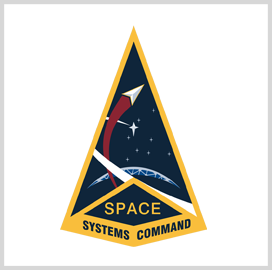Space Systems Command has begun seeking information on the second installment of medium Earth orbit-based satellites for missile warning, tracking and defense applications.
In a notice posted Friday on SAM.gov, SSC said it is soliciting industry input on the acquisition strategy and technical approach for a space segment and an integrated ground segment of the Resilient Missile Warning/Missile Tracking MEO Epoch 2 program.
For each Epoch of the MEO MW/MT architecture, SSC plans to make at least one competitive award, add new technologies and update warfighter requirements.
According to SSC, the second increment will focus on the maturation of MW/MT sensors, optical satellite cross-links, data fusion, ground communications and constellation mission management.
Responses to the request for information are due May 16.





